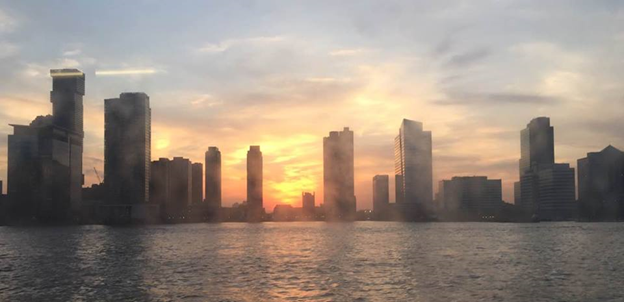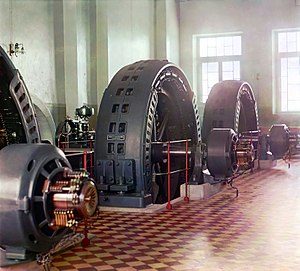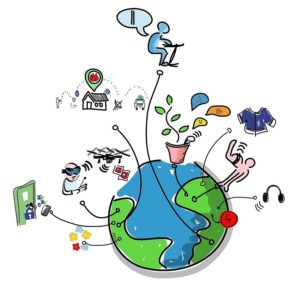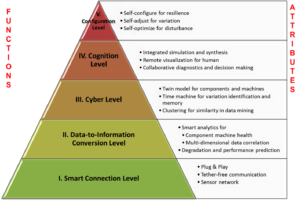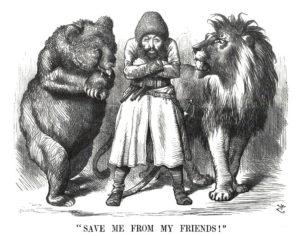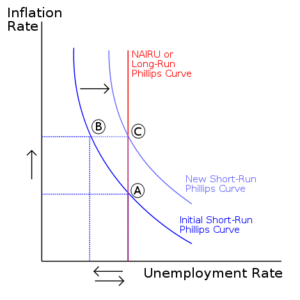
It is well known that in our 21st century there is currently huge mass unemployment in the less developed and developing economies. The more developed economies on the other hand have severe human capital shortage looming in their future, in Japan, Europe, China and the US. Due to this demographic divide between the have and the have nots, the future of a nation’s economy and civilization, may be thrown into peril. Currently there has been a huge urbanization in the developed economies, with mass movement of labor from the agricultural interior, to the large urban centers. World civilization lives and works in these new Mega urban clusters, formed by modern cities. Shanghai, Tokyo, Mumbai, New Delhi, London, Paris, Frankfurt, New York, Toronto, Mexico City, Brazil to name a few, have continued to grow bigger.
India has the greatest potential for mass unemployment, or mass growth on a scale, which can drive the world economy. The consensus from even Nobel Prize economists is, that India has to grow its Industrial base and urban centers, to provide employment to the million young people, who will join its workforce every month. This trend is likely to continue for a decade or more, as the young population enters its work force. The new arrivals are just the tip of the iceberg, as there is a mass underemployment in its half a million villages. Most statistics indirectly say that almost 80% of the rural population, is engaged in “agriculture”. This disguised unemployment leaves a vast labor force, available for taking up the new services, which the world will need.
Indian history does not show a goods exporting nation, but one of ideas and aspirations. The new Digital revolution suits India well, as a first mover, in the computer services industry. The Independent nation of 60 years, is finally throwing off its colonial past, and getting into its stride. There is resurgence of public works which will truly benefit its hinterland. More people are getting Highways, connecting their remote regions to the rest of the world, in this decade, than has happened in the history of the sub-continent. Similarly more people are getting electricity, sanitation, education, health services in the coming decade, than in the many decades since Independence. There is a remarkable will to overcome the past and leapfrog into a green future, and to provide services to its citizens,especially in its undeveloped areas.
On the other hand we have the economic sceptics, who question every move, and state that the implementation of truly global and far reaching reform, is beyond the capabilities of India’s people. They will plod on at their usual uneducated, undeveloped, unhealthy pace and the promise of a bright future will come, but not now, they claim. They question the competence of its democracy and the will of its public and private sector’s ability, to provide the productivity and investment needed, to provide employment at scale. They fear that a state of mass unemployment is coming, where lack of Industrial growth will hold back employment, and bring untold misery to its farmers and urban poor.
To all these naySayers I can only advise that it is time to read Indian history again. For most of human history till the 18th century, India had the highest GDP in the world. Whenever its people had a stable just and fair society, its people have prospered beyond expectations. The producer of Buddha,Ram, Krishna and the Vedas is a land steeped in time and evolution, of humans themselves. It has reinvented itself many times and still kept its culture and belief system intact. There is a secular society that has prospered in its diversity, from the time of the Greeks at tIndus. Chandragupta who was Alexander’s contemporary and ruled a huge empire left his throne, to seek salvation. His grandson Ashoka the Great renounced his prosperous empire, and started to serve humanity. His edicts and efforts spread Buddhism across the world. The most dangerous ideas that promote all life, like non-violence, vegetarianism, salvation arose in these lands. These ideas and aspirations come only, after the basic human needs are met.
The service industries will be India’s savior, as our world moves into a new era of prosperity for all. The basic hypotheses is changing as the solution is no longer in Industry, but in the new world of communication and service. Industry is required and China, Germany and the US have mastered it, and other nations will also catch up; based on their investments, and needs. It is in the new world order of ideas, compassion, health and love that change will come. Once the basic needs are filled for the developing world, it is then that India will play its part. Whether it is in providing basic services or in art, music, philosophy and the striving for a higher life, India will have a role to play. Its demographic dividend will become the world’s greatest asset, as the developed world will welcome Indian’s help, to become better. Currently only about 53% of India’s young people are employed, and the rest are a lotus bearing gift, which will open, when the light shines and the world opens its arms to welcome them. I say the Phillips curve shown above, is going to be severely tested in the future for the good or bad of humanity, based on what steps we take today. India is the diamond in the rough, getting ready to shine (at least it has the diamond cutters, to do so for the world)..
It is in the very nature of the capitalist mode of production to overwork some workers while keeping the rest as a reserve army of unemployed paupers.
— Marx, Theory of Surplus Value

